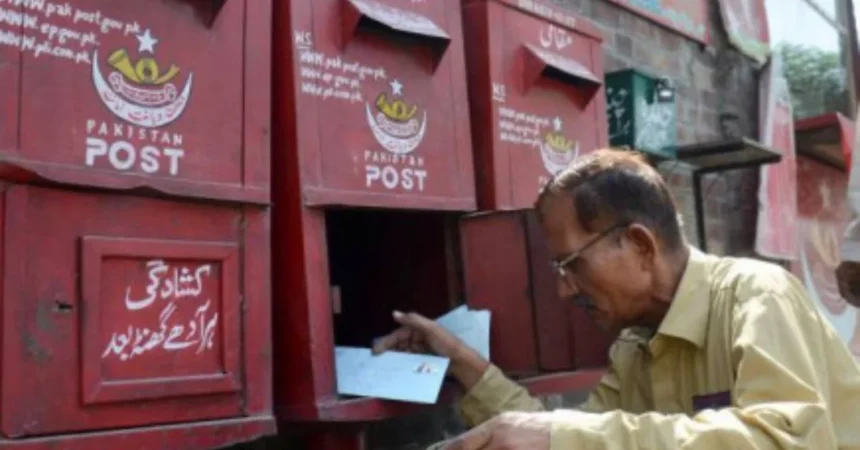The recent closure of 15 post offices across Karachi by the federal government has stirred significant concern among residents and workers alike. This decision, part of broader cost-cutting measures, aims to address the heavy operational losses experienced by Pakistan Post. With over 250 post offices operating in Karachi, the implications of this move are far-reaching, affecting postal services, employee livelihoods, and the overall perception of the postal service in the city.
Background of Pakistan Post
Pakistan Post has a long and storied history, providing essential postal services to the population for decades. With the advent of digital communication and private courier services, the traditional postal system has faced increased scrutiny regarding its efficiency and relevance. Despite these challenges, Pakistan Post has attempted to modernize and adapt to changing market conditions. However, the persistent financial struggles have led to tough decisions, such as the recent closures.
Details of the Closure
On the heels of financial reviews, a notification issued by the Karachi Postmaster General announced the immediate shutdown of 15 post offices in various districts. The closures are primarily concentrated in District West, District Central, and District East, with facilities such as the Shershah Colony Post Office and the Beach Luxury Post Office among those affected. Notably, some of the closed post offices had been offering extended hours, including night-time services, which served a crucial need in the community.
According to the postmaster general, these offices were characterized as “non-delivery” facilities. This classification indicates that they primarily booked mail and provided limited services without engaging significantly in the actual delivery of postal items. This operational model contributed to their financial losses, leading to the decision for closure.
Financial Implications
The closures come amid ongoing financial challenges for Pakistan Post. The organization has been grappling with operational losses due to several factors, including reduced mail volumes and increased competition from private courier services. With many people turning to digital platforms for communication and package delivery, the traditional postal model has struggled to maintain its relevance.
The decision to close these post offices reflects an urgent need for cost-cutting measures within the organization. By eliminating facilities that are not economically viable, Pakistan Post aims to streamline its operations and focus resources on locations that are more effective in serving the public. This restructuring is seen as a necessary step to ensure the long-term sustainability of the postal service.
Impact on Employees
One of the most pressing concerns surrounding the closure of these post offices is the impact on employees. While the Karachi Postmaster General has assured that there will be no job losses, stating that employees in grades 1 to 10 will be reassigned to other post offices, the uncertainty remains for many workers. The closure of 15 facilities inevitably raises questions about the stability of employment in an already precarious job market.
The reassignment of employees will depend on the available positions within the remaining post offices and the qualifications and skills of the affected workers. While some may find new opportunities within the organization, others may face challenges in transitioning to different roles. The fear of job instability can lead to a decline in morale among workers, potentially impacting service delivery in the remaining facilities.
Public Reaction
The public reaction to the closure has been mixed. On one hand, some residents express understanding of the need for cost-cutting measures in light of Pakistan Post’s financial struggles. Others, however, view the move as a significant blow to community services, especially in neighborhoods that relied on the convenience of nearby post offices.
Critics argue that the closures will disproportionately affect low-income residents who may not have the means to travel to more distant post offices. For many individuals, especially the elderly or those without access to private transportation, the local post office is an essential resource for sending and receiving mail, paying bills, and accessing various services.
Ghayas Alam, a representative of the National Organisation of Postal Employees, has characterized the closure as a “damaging move” that undermines the quality of services for Karachi residents. He argues that postal services should be considered a public good rather than solely a commercial operation. The sentiment among many employees and community members is that the government should prioritize enhancing services rather than cutting them back.
The Future of Pakistan Post
The decision to close post offices in Karachi raises broader questions about the future of Pakistan Post in an increasingly digital world. As e-commerce continues to grow and more people turn to online platforms for communication, the postal service must find ways to adapt and innovate. Simply shutting down facilities may not be a sustainable solution.
In recent years, many postal services worldwide have successfully transitioned by diversifying their offerings. For instance, some have introduced logistics services that cater to the booming e-commerce market, while others have embraced technology to improve customer engagement. In Pakistan, a similar strategy could be beneficial for Pakistan Post.
Investing in technology to streamline operations, improve tracking systems, and enhance customer service could create a more competitive and appealing postal service. Collaborations with private courier companies to offer integrated services may also be a way forward, providing residents with more options and improving overall service delivery.
Lessons from Other Countries
International examples provide valuable lessons for Pakistan Post as it navigates these challenges. Many countries have faced similar pressures and have successfully reformed their postal systems to become more resilient. For instance, the United States Postal Service (USPS) has embraced technology by implementing automated sorting systems and investing in online services that allow customers to track shipments and manage their postal needs digitally.
Countries like New Zealand and Australia have also restructured their postal services to focus on efficiency while maintaining essential community services. These nations have recognized that while cost-cutting is necessary, it should not come at the expense of service quality. A balanced approach that emphasizes both sustainability and accessibility is crucial for any postal system.
Potential Solutions
To avoid further cuts and enhance the postal service’s viability, Pakistan Post could consider several strategies:
1. **Service Diversification**: Exploring new revenue streams beyond traditional mail delivery, such as financial services, e-commerce partnerships, and logistics solutions, can help stabilize finances.
2. **Community Engagement**: Actively involving community members in discussions about postal services can lead to valuable insights and foster a sense of ownership. This engagement can help identify the specific needs of different neighborhoods and tailor services accordingly.
3. **Technology Adoption**: Investing in digital infrastructure to facilitate online services, enhance customer interaction, and streamline internal operations can improve efficiency and customer satisfaction.
4. **Staff Training and Development**: Providing training opportunities for employees to enhance their skills can lead to a more versatile workforce, better equipped to handle diverse tasks and improve service delivery.
5. **Public Awareness Campaigns**: Educating the public about the range of services offered by Pakistan Post can encourage more residents to utilize these facilities, increasing their relevance and financial sustainability.
The closure of 15 post offices in Karachi is a significant development that reflects the broader challenges facing Pakistan Post. While cost-cutting measures are necessary for addressing financial losses, the decision raises concerns about service accessibility and the future of postal services in the city.
Moving forward, Pakistan Post must explore innovative solutions to adapt to changing market conditions while maintaining its commitment to serving the public. By prioritizing diversification, community engagement, and technology adoption, the postal service can enhance its relevance in an increasingly digital world, ensuring it remains a vital resource for residents across Karachi and beyond.







